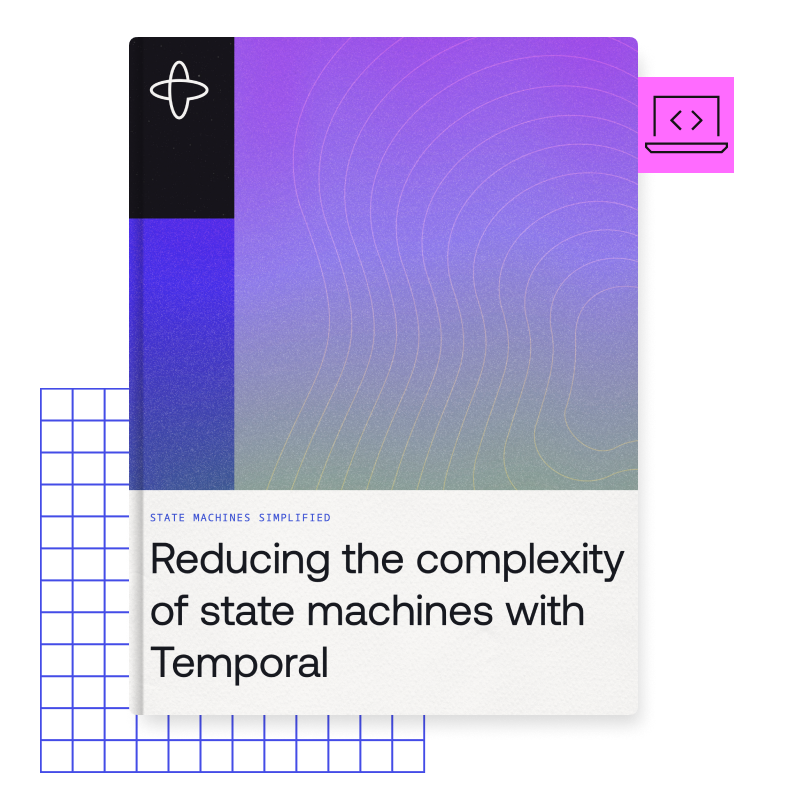A state machine, also referred to as a finite state machine (FSM) or state diagram, is a programming paradigm used that manages state changes and makes the current state of a system explicit.
To implement a state machine, you must design the system's behavior around its state transitions and events. Event-driven state machines, which react to external stimuli, are particularly useful in complex applications requiring dynamic behavior.
Despite their value, state machines are complex to build, test, and change, especially as the number of steps and possible states increases. An alternative to state machines is employing an orchestration tool tailored for business workflows. This is where Temporal proves invaluable, as it's precisely engineered for this task. Temporal provides a simple, easy to use, and durable alternative to state machines.
In this whitepaper, you'll learn:

You'll also get access to code samples and a corresponding Java GitHub repository of a project built with a state machine vs. the same project built using Temporal.
Fill out the form above to access the State Machines Simplified whitepaper!